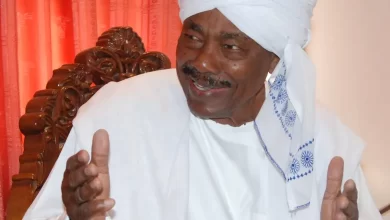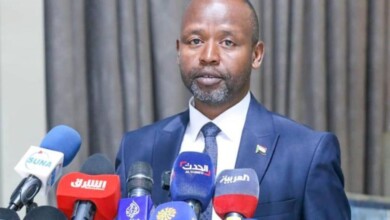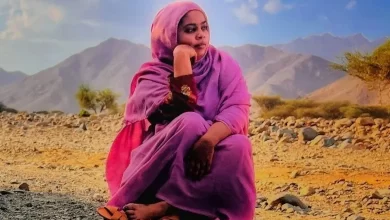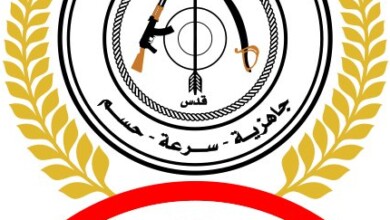Following the failure to stop the war..
How did the Sudanese comment on the Russian veto?
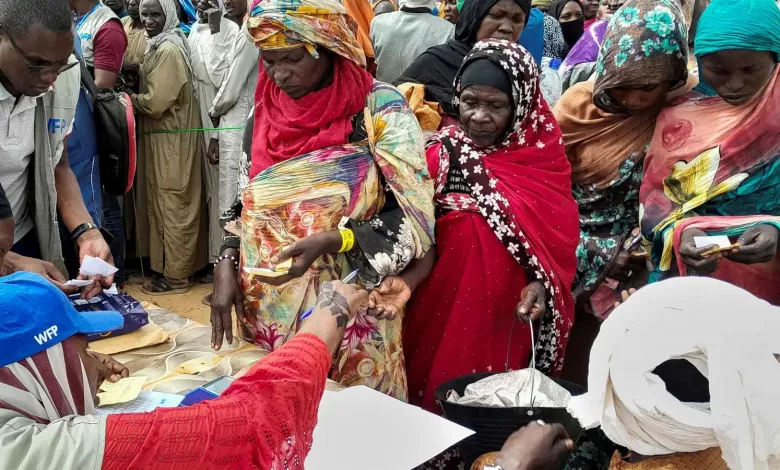
Amid the crushing sense of disappointment the Sudanese people felt due to the failure of the UN Security Council to adopt an international draft resolution to stop the war, the Spokesperson for the Coordination-body of the Democratic and Civil Forces “Tagadom” confirmed that the “Russian veto” that obstructed the resolution opposed the international will and the human conscience.
On Monday, the UN Security Council failed to adopt a draft resolution calling on the Army and the Rapid Support Forces to uphold their commitments in the Jeddah Declaration regarding the protection of civilians and implement them fully, in addition to taking all possible precautions to avoid and minimize the consequent harm to civilians.
The Sudanese Sense of Regret
The Spokesperson for the Coordination-body of the Democratic and Civil Forces “Tagadom” Bakri Al-Jack told (Erem News) that: (The use of the veto, although understandable in the context of the international state of play and as an attempt to use Sudan as leverage in order to obtain gains somewhere, this veto opposed the international will and human conscience).
He added that (Nullifying a draft resolution that could have been built upon to create a mechanism to protect civilians means that civilians in Sudan are now vulnerable to being held hostage by the warring parties, and the violations they are subjected to will be a means of political gain by the warring parties).
Bakri Al-Jack pointed out that the warring parties may choose to perceive the Russian veto as a license to continue the war and expand its scope without caring about the consequences on civilians or the risk of dividing the country.
He went on to add, (In any case, Russia will continue to sell weapons to both parties and will obtain gold from both parties amid the regret of the Sudanese nation and the confusion of the world).
The British Foreign Secretary David Lammy, whose country holds the rotating presidency of the UN Security Council, stated after Russia used its right of veto, that Sudanese civilians had suffered unimaginable violence during the war, and this suffering is a scar on the collective conscience.
(In the face of these horrors, the UK and Sierra Leone worked to bring the Security Council together to address this humanitarian crisis and catastrophe, to protect civilians, ensure humanitarian access and call for a ceasefire. However, one country stood in the way, after the Council spoke with a consensus voice, one country is the obstructionist and the enemy of peace. The Russian veto is a disgrace and shows the world once again the true face of Russia,) he added.
Protecting Al-Burhan
For his part, the advisor to the Rapid Support Forces, Al-Basha Tibeaq, commented on the failure of the Security Council to adopt the international resolution, saying that Russia’s use of the veto against the draft resolution submitted by Britain in the UN Security Council session on the protection of civilians and the delivery of humanitarian aid, lacks any sense of human ethics and is a stain on the Russian regime.
He added in a post on the “X” platform, that (How could it not be, when Russia is the one that provided protection to dictatorial regimes and contributed to the killing and displacement of their people, and now it is repeating the same scenario in Sudan and giving Al-Burhan and the terrorist Al-Baraa Brigade the green light, to continue bombing civilians with warplanes, destroying their homes, bombing hospitals, bridges and overpasses, in addition to killing children and women with explosive barrels).
He pointed out that the Russian position came in exchange for granting it lands on the Red Sea shore to establish a Military Base, to provide protection to the Sudanese Army Commander-in-Chief Abdel Fattah, from the UN Security Council resolutions so he could continue killing and crushing the Sudanese people.
He continued, (People ought to understand that the great powers only care about their own interests, regardless of the lives of other nations).
Political analyst Ammar Al-Baqir believes that the Russian veto came in the interest of both parties to the war in Sudan because it included provisions that restrict their military advances and could result in international sanctions in the future.
Al-Baqir told (Erem News) that the draft resolution, if adopted by the Security Council, will accelerate the cessation of the war because it opens the door to international military intervention that forces both parties to cease fire, indicating that Russia benefits from the continuation of the war because it is still gaining benefits from both parties.
He added that (The draft resolution is consistent with the civilian forces’ proposed agenda to stop the war in Sudan, which is based on disengaging Al-Bashir’s regime group from the Sudanese Army, considering that elements of the former regime continued to obstruct peace initiatives and hijack the voice of citizens. However, establishing demilitarized zones under international protection withdraws civilians, after they were taken as hostages in order to accept the former regime’s return to power through any initiative to stop the war).
The Safe Zones
He stated that Russia has no common interest with the Sudanese civilian forces, but its interests lie only with the Military Force, indicating that its obstruction of the draft resolution will ensure the continuation of its relations with both parties.
Sudanese forces, headed by the Coordination-body of the Democratic and Civil Forces “Tagadom”, headed by Abdullah Hamdok, had proposed during the previous period the idea of establishing safe zones for civilians inside Sudan, in which all hostilities would stop, all military forces would withdraw, and aviation, artillery shelling and the use of drones would be prohibited, and they would be guarded by independent and impartial international forces.
Tagadom called on the warring parties to respond to this proposal; because these areas would provide a safe haven for civilians, especially in the areas most affected by violence, according to its perspective.
The British draft resolution that Russia obstructed called on the warring parties to start negotiations, in good faith, to come to an agreement regarding truce periods and humanitarian corridors, on a sustainable basis, to ensure the safe passage of civilians, the delivery of sufficient humanitarian aid, and the repair and restoration of vital humanitarian infrastructure and basic services.
The draft resolution calls on “The warring parties to immediately cease hostilities,” and “Calls on the parties to the conflict to allow and facilitate full, safe, rapid and unhindered humanitarian access across lines of contact and borders into Sudan and throughout the country.”

